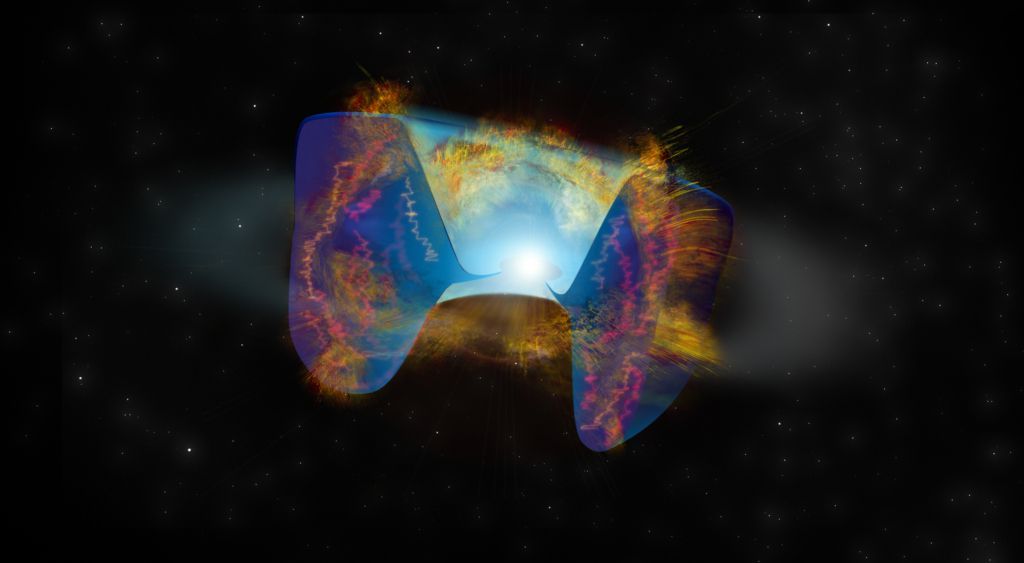Scientists may have discovered a new type of supernova
Add Axios as your preferred source to
see more of our stories on Google.

Scientists think they may have found a type of supernova never before seen.
Why it matters: Typically, massive stars explode as supernovas when they run out of fuel, but researchers have been on the lookout for other kinds of stellar explosions that might help them better understand the strangeness of our universe.
What they found: A new study in the journal Science used data from the Very Large Array Sky Survey to figure out that a massive star's explosion was likely triggered by a black hole or neutron star companion spiraling in and colliding with it.
- This marks the first time such a supernova has been spotted.
The big picture: Scientists know these types of star systems exist because of previous observations.
- These types of systems can usually involve the black hole or neutron star orbiting its companion star for millions or billions of years. (When they collide, they can create gravitational waves.)
- But in this case, the star and black hole or neutron star collided very quickly, creating a huge blast of radio waves that was seen by the VLA Sky Survey.
- "During this process you find yourself pulled in different directions by different explanations, and you simply let nature tell you what's out there," Dillon Dong, of Caltech, one of the authors of the new study, said in a statement.
Go deeper: The future of the search for life
